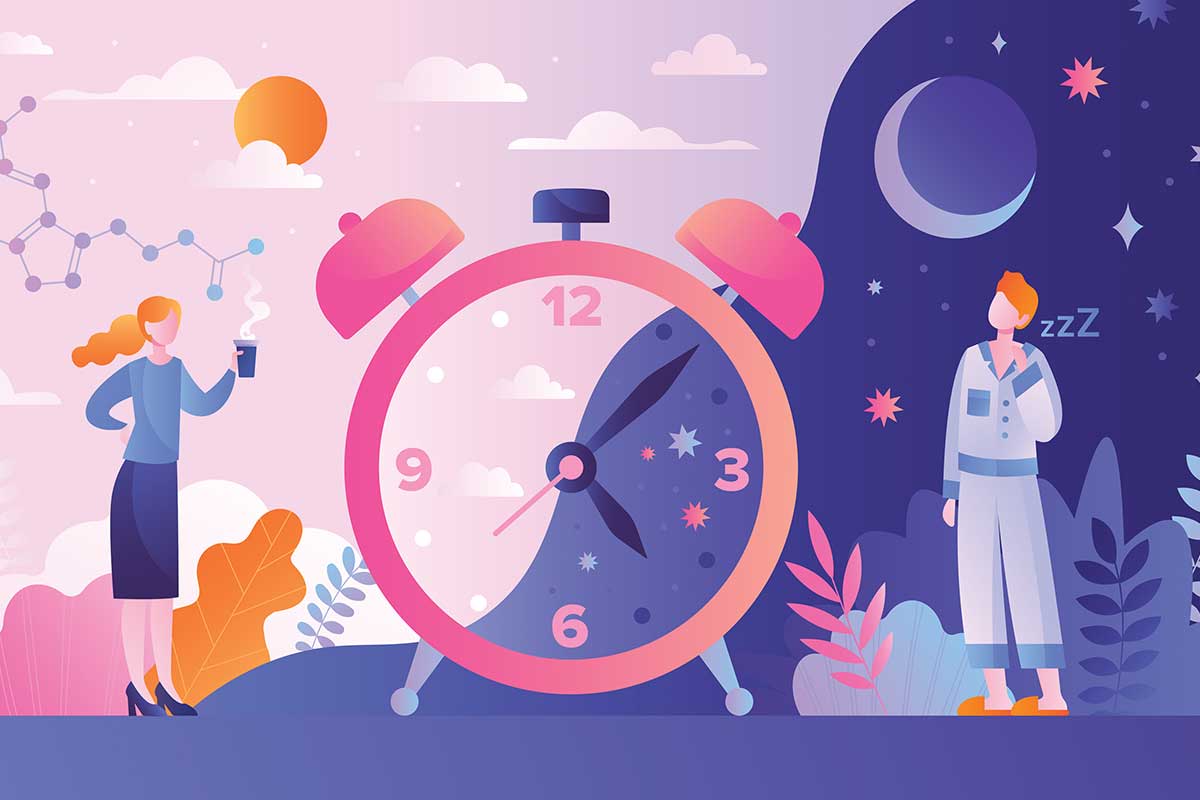
Do you carefully watch what you eat, exercise on the regular—and still see the needle on that scale creep up? Or maybe your problem is sleeping—as in, you can’t. What if eating essentially the same foods you do now, just at different times of the day, could boost your energy level, help keep your weight down, and help you deal with stress better? That’s one finding of new research into circadian rhythms at George Mason University.
Circadian rhythms are the physical, mental, and behavioral changes that follow a 24-hour cycle, and respond to the transition from day to night, light to darkness, to direct our sleep patterns and energy levels. These natural bodily functions also influence our energy metabolism, and that, combined with what we eat, can influence body composition.
“Every organism and each cell within that organism has its own rhythm, and the body’s function changes over 24 hours,” says Elizabeth de Jonge, Ph.D., associate professor in the department of nutrition and food studies at GMU. “People who don’t sleep enough (six to eight hours a night) or who sleep too much have a higher tendency to gain weight.”
Most interesting about de Jonge’s research is that it shows how the typical American diet, combined with early rising hours for school and work, inverts the natural bodily processes—making us sleep less soundly, gain weight, and feel listless. That’s largely because the nutrients and portion size we tend to eat for breakfast, lunch, and dinner are the opposite of what they should be.
While it may not be possible to rearrange your work or life schedule because of your circadian rhythms, it might be worth rethinking the type of food you eat in a day, and when you consume it.
Breakfast
Portion: Should be the biggest meal of the day
Good bets: Meat, potatoes, and vegetables.
“Your body is much better equipped to digest and metabolize food in the morning,” de Jonge says. Protein is an “expensive” nutrient, meaning it requires a lot of work for the body to digest, but lean mass is responsible for our energy metabolism. It keeps you fuller for a longer period of time, and when you consume it in the morning, when the body is more efficient, its nutrients help you function and deal with stressful situations throughout the day, de Jonge says.
Lunch
Portion: Should be the medium meal of the day
Good bets: Vegetables, fruit, dairy, and protein.
“Lunch should be a good-sized meal,” says de Jonge. “If you take time away from typing or [working at] your desk to eat while focusing on the food, you’ll notice when you’re full and eat less.”
Dinner
Portion: Should be the smallest meal of the day
Good bets: “Breakfast” foods like yogurt, toast, cereal, fruit, and vegetables.
“At the end of the day, your body is basically tired,” says de Jonge, “and when your hormonal background is not set up to digest a lot of food, you don’t sleep as well.”
This story originally appeared in our November issue. For more stories like this, subscribe to our monthly magazine.
The Time You Eat at Could Make You Gain Weight, This GMU Professor Says - northernvirginiamag.com
Read More

No comments:
Post a Comment